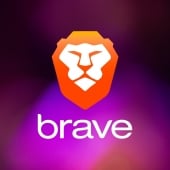-
Cerebral to pay $7 million settlement in Facebook pixel data leak case
The U.S. Federal Trade Commission has reached a settlement with telehealth firm Cerebral in which the company will pay $7,000,000 over allegations of mishandling people's sensitive health data.
- April 16, 2024
- 05:37 PM
 0
0
-
OpenTable won't add first names, photos to old reviews after backlash
OpenTable has reversed its decision to show members' first names and profile pictures in past anonymous reviews after receiving backlash from members who felt it was a breach of privacy.
- April 14, 2024
- 06:28 PM
 3
3
-
OpenTable is adding your first name to previously anonymous reviews
Restaurant reservation platform OpenTable says that all reviews on the platform will no longer be fully anonymous starting May 22nd and will now show members' profile pictures and first names.
- April 11, 2024
- 06:15 PM
 3
3
-
DuckDuckGo launches a premium Privacy Pro VPN service
DuckDuckGo has launched a new paid-for 3-in-1 subscription service called 'Privacy Pro,' which includes a virtual private network (VPN), a personal data removal service, and an identity theft restoration solution.
- April 11, 2024
- 08:00 AM
 4
4
-
Google agrees to delete Chrome browsing data of 136 million users
Google has agreed to delete billions of data records collected from 136 million Chrome users in the United States, as part of a lawsuit settlement regarding alleged undisclosed browser data collection while in Incognito mode.
- April 02, 2024
- 01:07 PM
 0
0
-
Google Chrome gets real-time phishing protection later this month
Google will roll out a Safe Browsing update later this month that will provide real-time malware and phishing protection to all Chrome users, without compromising their browsing privacy.
- March 14, 2024
- 12:00 PM
 5
5
-
YouTube stops recommending videos when signed out of Google
YouTube has changed how it works for people not signed into Google account or using incoginto mode, and it's not showing suggested videos anymore. This change, which is being tested with some random users, shows a very simple YouTube homepage without any videos or tips on what to watch.
- March 10, 2024
- 06:16 PM
 15
15
-
New executive order bans mass sale of personal data to China, Russia
U.S. President Joe Biden has signed an executive order that aims to ban the bulk sale and transfer of Americans' private data to "countries of concern" such as China, Russia, Iran, North Korea, Cuba, and Venezuela.
- February 28, 2024
- 03:50 PM
 8
8
-
FTC to ban Avast from selling browsing data for advertising purposes
The U.S. Federal Trade Commission (FTC) will order Avast to pay $16.5 million and ban the company from selling the users' web browsing data or licensing it for advertising purposes.
- February 22, 2024
- 11:48 AM
 1
1
-
Signal rolls out usernames that let you hide your phone number
End-to-end encrypted messaging app Signal finally allows users to pick custom usernames to connect with others while protecting their phone number privacy.
- February 20, 2024
- 02:11 PM
 4
4
-
DuckDuckGo browser gets end-to-end encrypted sync feature
The DuckDuckGo browser has unveiled a new end-to-end encrypted Sync & Backup feature that lets users privately and securely synchronize their bookmarks, passwords, and Email Protection settings across multiple devices.
- February 14, 2024
- 08:00 AM
 0
0
-
ExpressVPN bug has been leaking some DNS requests for years
ExpressVPN has removed the split tunneling feature from the latest version of its software after finding that a bug exposed the domains users were visiting to configured DNS servers.
- February 11, 2024
- 10:09 AM
 0
0
-
Denmark orders schools to stop sending student data to Google
The Danish data protection authority (Datatilsynet) has issued an injunction regarding student data being funneled to Google through the use of Chromebooks and Google Workspace services in the country's schools.
- February 07, 2024
- 03:15 PM
 3
3
-
Check if you're in Google Chrome's third-party cookie phaseout test
Google has started testing the phasing out of third-party cookies on Chrome, affecting about 1% of its users or approximately 30 million people. Learn how to check if you are part of the initial test.
- February 03, 2024
- 02:14 PM
 3
3
-
iPhone apps abuse iOS push notifications to collect user data
Numerous iOS apps are using background processes triggered by push notifications to collect user data about devices, potentially allowing the creation of fingerprinting profiles used for tracking.
- January 25, 2024
- 01:28 PM
 0
0
-
Brave to end 'Strict' fingerprinting protection as it breaks websites
Brave Software has announced plans to deprecate the 'Strict' fingerprinting protection mode in its privacy-focused Brave Browser because it causes many sites to function incorrectly.
- January 21, 2024
- 10:19 AM
 0
0
-
OpenAI rolls out imperfect fix for ChatGPT data leak flaw
OpenAI has mitigated a data exfiltration bug in ChatGPT that could potentially leak conversation details to an external URL.
- December 21, 2023
- 11:44 AM
 0
0
-
Meta rolls out default end-to-end encryption on Messenger, Facebook
Meta has announced that the immediate availability of end-to-end encryption for all chats and calls made through the Messenger app, as well as the Facebook social media platform.
- December 07, 2023
- 09:27 AM
 2
2
-
US senator: Govts spy on Apple, Google users via mobile notifications
A U.S. senator revealed today that government agencies worldwide demand mobile push notification records from Apple and Google users to spy on their customers.
- December 06, 2023
- 02:58 PM
 1
1
-
WhatsApp's new Secret Code feature hides your locked chats
WhatsApp has introduced a new Secret Code feature that allows users to hide their locked chats by setting a custom password.
- November 30, 2023
- 04:32 PM
 0
0

























